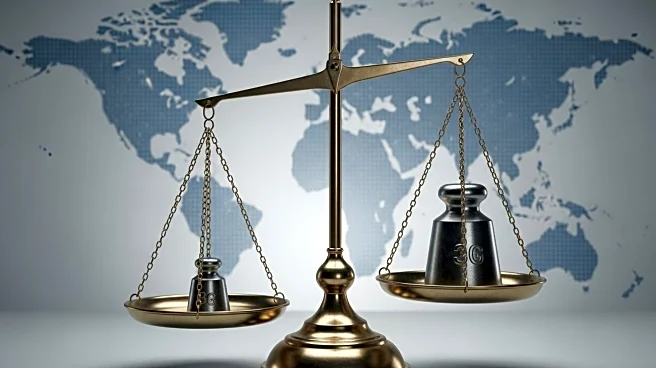What's Happening?
A recent analysis highlights the limitations of focusing solely on tariffs as a tool for trade policy. The report argues that while tariffs are visible and politically contentious, they are not the only means by which governments influence trade. Other mechanisms, such as fiscal decisions, regulatory structures, and labor policies, also play significant roles in shaping trade relationships. These tools can shift income from consumers to producers, affecting both domestic and international economic balances. The analysis suggests that a broader understanding of trade policy is necessary, one that considers internal economic structures and income distribution.
Why It's Important?
The emphasis on tariffs in trade policy discussions can obscure more fundamental economic interventions that affect global trade. By focusing narrowly on tariffs, policymakers may overlook other significant factors that contribute to trade imbalances. This broader perspective is crucial for understanding how domestic policies impact international trade dynamics. It highlights the need for comprehensive trade strategies that address internal economic structures, potentially leading to more balanced and sustainable trade relationships. This approach could benefit both producers and consumers by fostering a more equitable distribution of income and resources.









